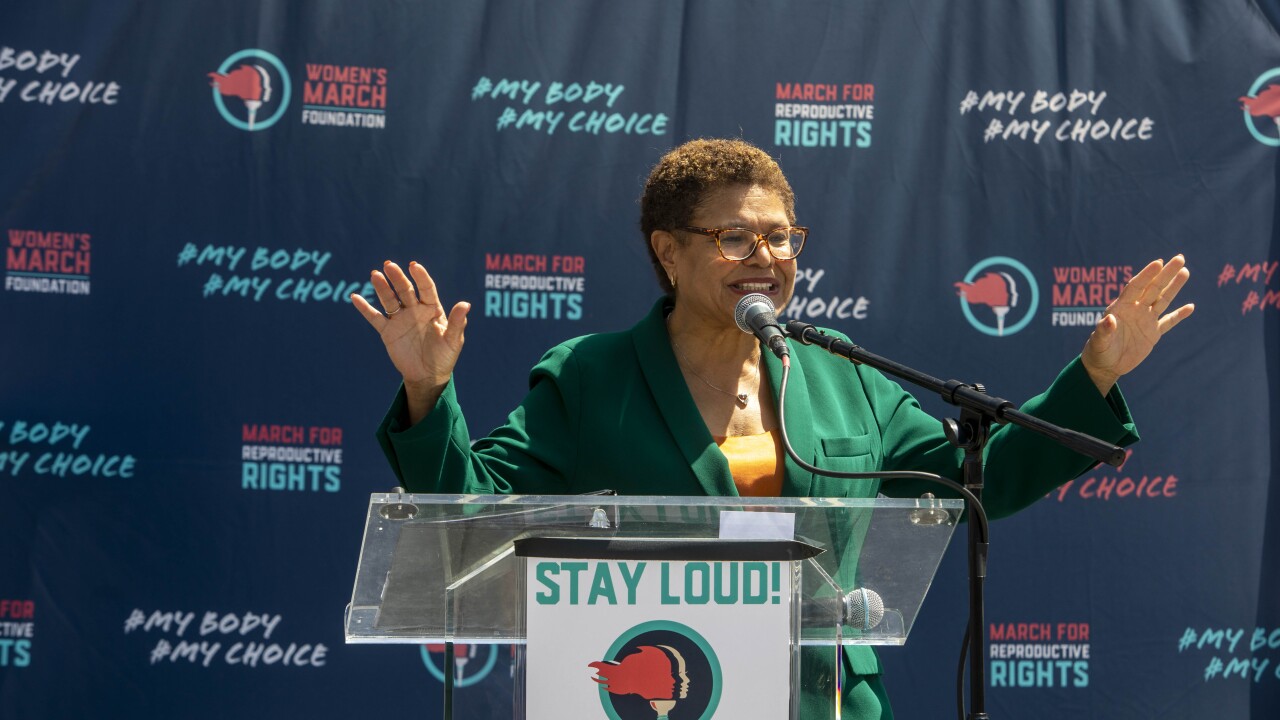
A performance audit of Pennsylvania's two major public pension systems should conclude by early next year, said state Auditor General Eugene DePasquale.
"It's been building," DePasquale told reporters late Monday of his plans to investigate the State Employees' Retirement System and the Public School Employees' Retirement System. "We're paying them a lot of money. What are we getting in return?"
Pension underfunding has become increasingly under the national glare in municipal finance.
SERS and PSERS will combine for nearly $3 billion in spending for fiscal 2017, or almost 10% of the overall budget.
Estimates of public pension underfunding in Pennsylvania run up to $70 billion including counties and municipalities. According to DePasquale, the liabilities of PSERS and SERS total $53.3 billion -- $35.1 billion for PSERS and $18.2 billion for SERS.
"We hear everything under the sun right now," said DePasquale. "We intend to go knee deep in the audit."
DePasquale announced the audit four days the U.S. District Court for the Middle District of Pennsylvania charged Barbara Hafer, the state's treasurer from 1997 to 2005, with two counts of making false statements to federal agencies.
U.S. Attorney Peter Smith also indicted Philadelphia businessman Richard Ireland.
The charges did not motivate the audit, DePasquale said. Pennsylvania treasurers sit as ex-officio board members on the SERS and PSERS boards.
According to court documents, Hafer lied about receiving nearly $700,000 from Ireland shortly after leaving office. Federal prosecutors also linked Ireland to Rob McCord, another former state treasurer, through a seven-year bribery scheme. McCord resigned in January 2015 and one month later pleaded guilty to two counts of extortion.
Hafer is the third Pennsylvania treasurer indicted over the last 30 years. In addition to Hafer and McCord, Budd Dwyer in 1987 shot himself to death at a Harrisburg press conference right before his scheduled imprisonment.
"Based upon a thorough review, SERS has found no direct holdings or investments with any companies that are known to be owned or operated by Mr. Ireland," SERS chairman David Fillman said in a statement on the pension fund's website.
Investment gains for both were well below their 7.5% benchmarks in 2015. PSERS and SERS reported 3% and 0.4%, respectively. PSERS has since reduced its assumed annual investment rate of return to 7.25%.
"PSERS has already begun to prepare for the entrance interview which is expected to occur in August and will provide documentation and assistance as requested," the fund's press secretary, Evelyn Tatkovski Williams, said in a statement. "We welcome any recommendations that will continue PSERS' ongoing efforts to improve efficiency and transparency of the system."
SERS, in a separate statement, said it is reviewing DePasquale's letter.
"SERS continually works to improve efficiencies and overall operations for the more than 236,000 members who rely on the system for their retirement benefit," said spokeswoman Pamela Hile.
The performance audit is the first of the pension funds since 2003. The funds at the time sued then-Auditor General Bob Casey, asserting that he lacked authority. The Commonwealth Court of Pennsylvania backed Casey in a 6-1 ruling and the audit continued.
State Rep. John McGinnis, R-Altoona, favors benchmarking to private sector practices.
"It's a good idea, though I'm a little worried about how he's going to go about it," McGinnis said of the DePasquale audit. "It's critical which benchmark you choose."
Hummelstown, Pa., actuary Richard Dreyfuss worries that DePasquale will base his analysis solely against other public-sector plans.
"It would be helpful to know who and what defines phrases such as 'investment strategies are prudent,' 'minimize risk based on market conditions,' and 'investment fees are reasonable,' " said Dreyfuss, a retired Hershey Foods executive.
"In addition, I know taxpayers would be interested in the financial control procedures related to properly quantifying the risk of plan insolvency over the next 10, 20 or 30 years."





